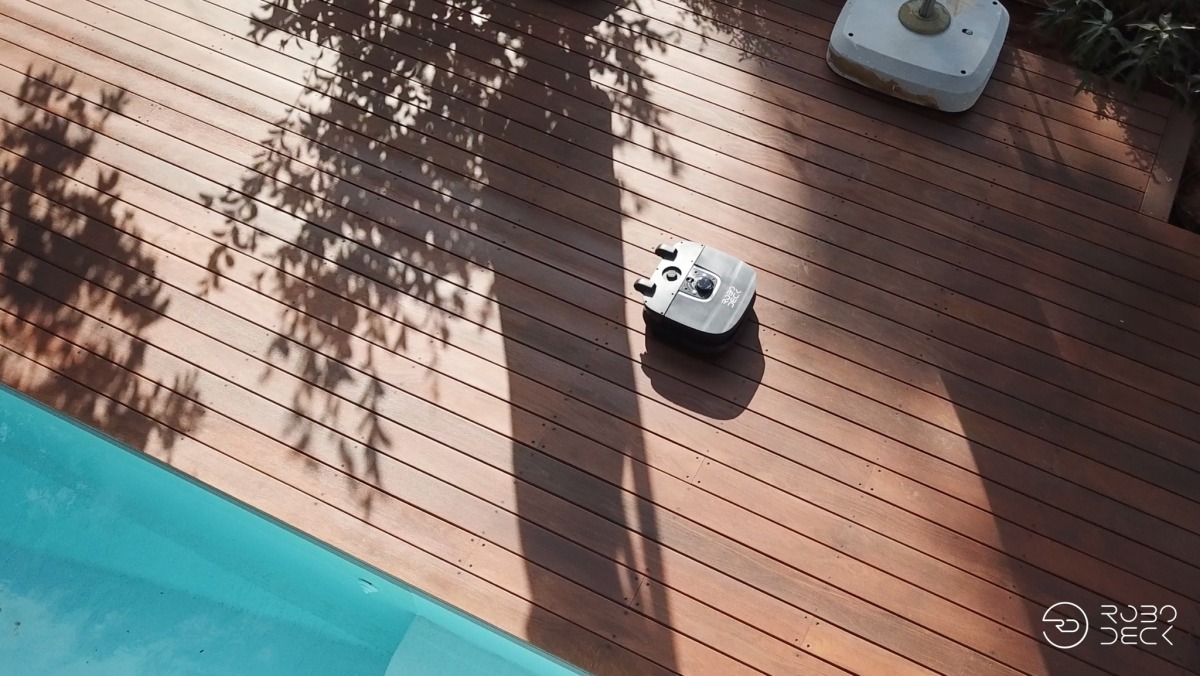
RoboDeck, the deck maintenance robot, scores a $2M pre-seed
I’m sure the team at RoboDeck is sick and tired of people referring to their robot is a “Roomba for decks.” But we did so in our write-up when the Israeli firm competed in Startup Battlefield, and I’ve just done so above. It’s a pretty memorable pitch as those things go. The system is designed for maintenance — a pretty annoying part of owning a deck (I’m told) — applying a sealant to the surface of the wood to help it weather a range of outdoor conditions.
Today the company announced a pre-seed round of $2 million, arriving a little under two years after it appeared on the Disrupt stage. SOSV led the round this time out and was joined by Scalar Ventures and Etz-Ve-Etza, along with a number of private investors.
The company cites pandemic-fueled interest in automation as a key driver in the funding. The post-pandemic workforce crunch is also a motivating factor as the company eyes commercial applications for the system — such as office buildings, boardwalks and restaurants, effectively any outdoor wooden surface that’s large enough to make maintenance a genuine nuisance.
The system is capable of treating up to 1,000 square feet in around 20 minutes — something that would take humans significantly longer to achieve. The sealant is an “environmentally friendly” material devolved along with Cabot, a New England firm that has been in the wood care game for 140-plus years.
“RoboDeck boasts an impressive client portfolio, including Cal Preserving — California’s largest deck maintenance company,” the company notes in a release, “SVB Bank offices in San Jose, The Tel Aviv Municipality, Azrieli Group, Ariel Properties of Electra Group — Israel’s largest property management company, Bezeq, Herbert Samuel Hotels, Hadassah Medical Center and others.”
Some of the funding will go toward expanding an extremely lean 10-person team currently split between Israel and L.A. RoboDeck is specifically hiring for its operational and R&D teams, as it looks to scale its system into broader production in line with existing demand.


